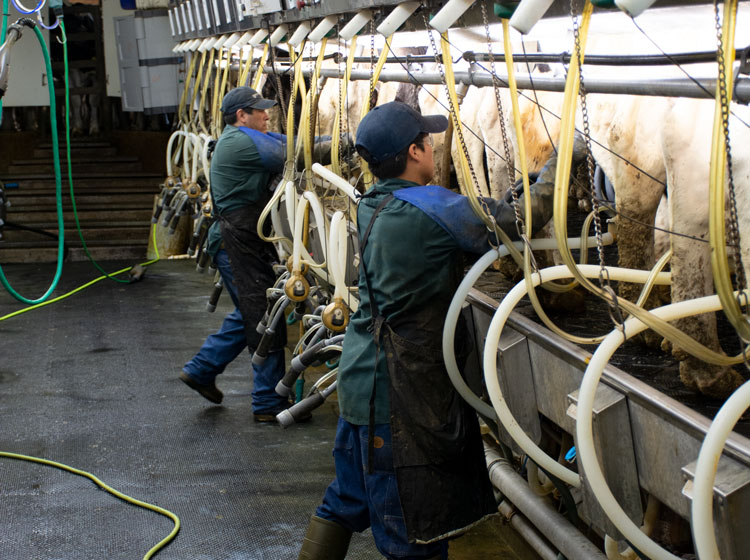
Stressful seasons on the farm can and do cause conflict, drama, and finger-pointing amongst employees and owners. The complications of COVID-19 and its economic influence means stress might be even higher than usual. During these periods, a strong farm team is even more important than usual.
“Employee management is more about management and less about employees.” That was the advice given by Tom Wall, who is the president of Dairy Interactive, during a Pro-Dairy webinar. “It takes real energy; it takes real passion; it takes real time.”
The first rule to good management is being present. As Wall describes it, rule one of good management is the “raffle rule.” In both the case of raffles and working situations, you must be present to win.
“We must have good, solid present leaders in place all the time. If you’re not present, how do you know what’s actually going on?” Wall questioned the audience.
Give them what they want
Good employees want order, respect, and opportunity. “In order to truly get through challenging times, we don’t look outside the farm, we don’t look outside of our team, we look within,” Wall said.
That requires a good management plan. Wall recommends four concepts as a starting point.
- Clarify
- Communicate
- Connect
- Recognize
Make your employees’ jobs as simple and easy as possible, Wall advised. “Ultimately, when we take the time to clarify and communicate what we expect, we promote better teamwork. We get people working together with less finger-pointing, less drama, and less conflict,” he continued.
When it comes to the second point of communication, good employees want to know how they are doing. Wall is a big proponent of monthly mandatory team meetings. “This is our one chance to sit down and really share what’s going on,” Wall explained. Keep it under one hour, cover three to five topics, and remember to listen as well as talk.
That brings up the third concept – connect. This step is all about forming relationships with real people so they know they are respected and appreciated. It gives people a reason to care.
The final concept – recognize – serves as a reminder to both reward what you value and punish or call out behaviors you don’t want on the farm. “We have to get serious about rewarding performance,” Wall said.








